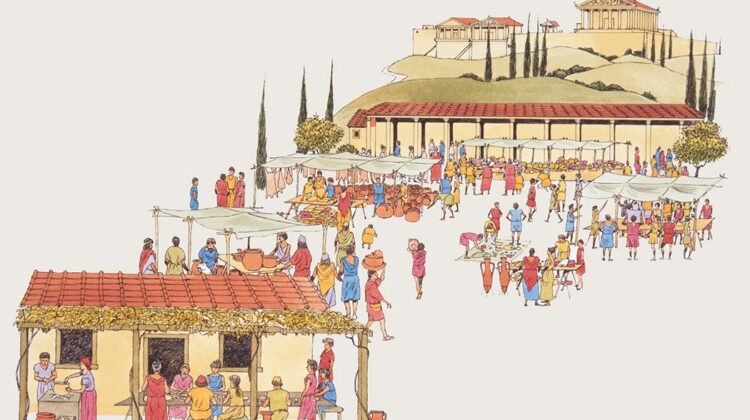 Reading Time: 2 minutes
Reading Time: 2 minutes
While the modern term “economics” is derived from the ancient Greek word “oikonomia,” the two concepts represent distinct approaches to understanding material life. Ancient Greek economic thought was deeply intertwined with ethics,morality, and the management of household affairs, differing significantly from the contemporary focus on scarcity and rational self-interest.
Oikonomia: Household Management
In ancient Greece, “oikonomia” referred to the rational management of material goods and labor within a household. It encompassed both production and consumption activities, with women playing a crucial role in organizing these affairs.Unlike modern economics, which often treats economic actors as self-interested individuals, ancient Greeks viewed economic activity within the broader context of household management and ethical behavior.
Ethical Considerations
Ancient Greek philosophers emphasized the ethical dimensions of economic activity. They believed that the goal of “oikonomia” was not merely to accumulate wealth but to use resources wisely and contribute to the well-being of the community. This included moderating consumption, supporting public institutions, and helping those in need.
The Assumption of Abundance
Unlike modern economics, which often grapples with the problem of scarcity, ancient Greek economic thought assumed a world of abundance. Aristotle believed that nature provided sufficient resources to meet people’s basic needs. The focus was on setting limits to economic activity and ensuring that resources were used wisely and ethically.
Key Differences between Ancient and Modern Economics
- Focus: Ancient Greek economics was more concerned with household management and ethical behavior, while modern economics emphasizes individual self-interest and market forces.
- Scarcity: Ancient Greeks assumed a world of abundance, while modern economics often deals with the problem of scarce resources.
- Ethics: Ancient Greek economic thought was deeply intertwined with ethics, while modern economics tends to be agnostic about moral issues.
The ancient Greek concept of “oikonomia” offers a valuable perspective on economic thought. By understanding the historical context and philosophical underpinnings of ancient Greek economics, we can gain a deeper appreciation for the evolution of economic ideas and the enduring questions that continue to shape our understanding of material life.

Leave a Reply